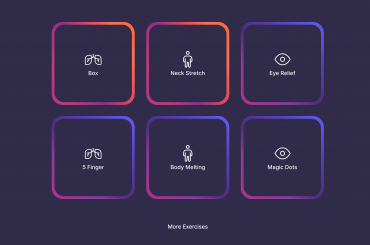Every parent wants the best for their children.
Safety is of paramount importance these days. Beyond that, we want them to have an enjoyable, prosperous life. A rewarding career. Meaning. Purpose.
As a result, the role we need to play in our child’s education is something we all end up thinking about.
It’s honestly a daunting question. The direction the world is heading in has never been less clear. The pace of technological change is disorienting. Yet there are still some common narratives most of us run through on the topic.
We all wonder how involved we should be in the process. Should I need to manage each and every detail? Or should I trust the experts to do the right thing?
We are told that we need to make choices. Should I move to a town with a better school? Should I choose a charter school instead of public? Or if I have the means, should I choose a private school or even homeschooling?
And then we are influenced to supplement our child’s education. Should I get a tutor? Or maybe try innovative new offerings, like Synthesis school, that take gamification methods to new heights.
Whatever it takes to engage my kid is best, right?
A parallel challenge of modern parenting is how to approach our child’s use of devices. What digital experiences are appropriate and when? When should they have their own smartphone? How much screen time is too much?
When we allow devices and games, we can all clearly see how much they consume our kids’ attention and diminish it in every other way. They don’t listen to you anymore. They get impulsive, especially when you ask them to stop.
And with more than a minimal amount of screen time, this behavior doesn’t seem to end with the games they are playing. They genuinely seem to struggle with finding enjoyment from non-gamified life.
This debate has fed into the growing concern about ADHD in and outside of education, especially after COVID. How do I know if my kids have an attentional disorder? What are the signs they need therapeutic help? And is it even appropriate to put them on what is essentially amphetamines to help?
These are quite clearly the negative repercussions of gamified and optimized engagement.
But wasn’t maximizing engagement a good thing in the context of my education choices?
We think it’s time to reconcile these parallel and competing narratives better.
Engagement is an experience someone (or something) creates to take the struggle of focus away. It makes it easy to be engaged.
Avoiding unnecessary struggle sounds like a great idea, especially for your child. So engagement has a positive tone in the context of education. Only recently the necessity of that struggle has become more clear – by observing our children’s inability to focus (if not our own).
Yet if there is one skill that we can say with absolute confidence is future-proof, it is focus. With focus, you can develop any other skill. You can get to know any subject. Embody any value. And once you understand the connection between focus and the experience of flow, you also know it is the gateway to enjoyment of life.
Before now, we haven’t had to emphasize the skill of focus in education. There just weren’t engagement shortcuts in life available. You had to struggle with it. Yet, it’s worth recognizing it has always been a skill developed by our system of education – just not explicitly.
Now that there are infinite shortcuts and distractions in life, we must finally emphasize it. We must make it explicit. It must become… our focus.
That means it’s time to rethink the role we as parents play in our child’s education.
Focus is fundamentally a biological phenomenon, which means it is heavily influenced by behavior. This means that parents might be the most important influence – how much they sleep, what they eat. How much game and device time they get. If they are given space to get bored.
Teachers are the experts at instruction, and they deserve respect for that. It is also their job to engage your child in what they teach. But there is only so far they can go into behaviors, particularly outside the classroom.
The new question that the skill of focus raises is: how far should a teacher go to create that engagement? What methods are appropriate for my child (ie, software driven gamification, engaging videos vs. in person lectures)? And how much space should they leave for boredom and struggle?
Answering these questions needs to come out of a deeper partnership between parents and teachers than ever. Parents have a new role to play in education – an attentional coach for their child.
This is a role we’re exploring how to build for parents into Focusable.
If there were one guideline for parents to consider for the rest of their choices, it is this – when in doubt, have the courage to choose the less engaging path. Preserving boredom and struggle in your child’s development may very well be the most important thing you can do at this point to set them up for success in life.



